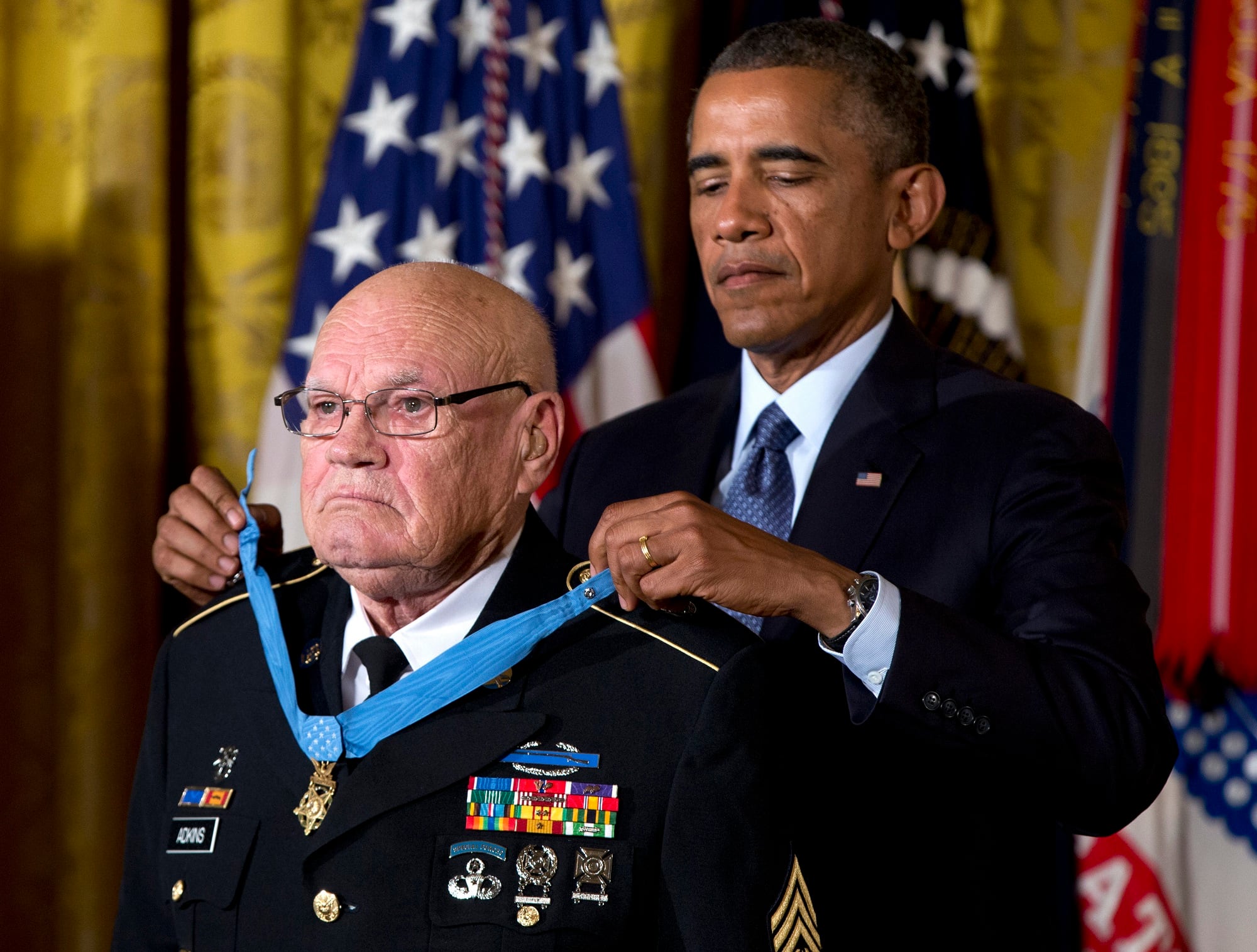OPELIKA, Ala. — A Medal of Honor recipient from Alabama who died after contracting COVID-19 earlier this year will be laid to rest this week at Arlington National Cemetery.
Services for retired Army Command Sgt. Maj. Bennie G. Adkins of Opelika were announced by the foundation he began to provide educational assistance for members of the Special Forces.
Adkins died in April at the age of 86 after falling ill with the illness caused by the new coronavirus. He received the nation’s highest military honor in 2014 for his heroic service with the Army Special Forces during the Vietnam War.
Adkins’ body will be escorted from an Opelika funeral home to the Atlanta airport by the Lee County Sheriff’s Office on Monday. He will be buried with full military honors on Wednesday morning at Arlington beside his late wife, who died last year.
The service for Adkins will be shown by livestream. His funeral was delayed because of the continuing pandemic.





